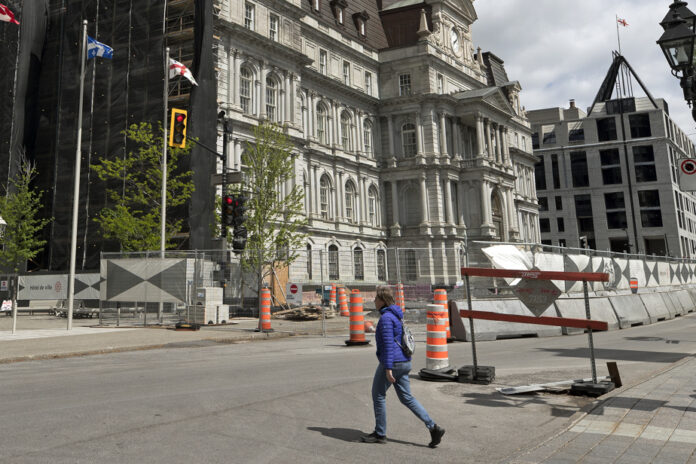Elected officials from the Plante administration want the City of Montreal to study the possibility of taxing vacant housing, car trips and large paved parking lots.
The members of Projet Montréal on the Commission des finances de la Ville de Montréal believe that these eco-fiscal measures deserve more attention.
They submitted Monday to the city council their consultation report for the draft budget of the City of Montreal, which must be presented in the fall. The elected representatives of the opposition, for their part, prepared their own report.
In particular, the members of Projet Montréal on the Finance Commission want Montreal to work to “identify and adopt, over the next few years, eco-taxation measures likely to encourage eco-responsible behavior and facilitate the ecological transition”.
To this end, Montreal should, for example, “rule on the implementation of a kilometer tax, which could replace the current fuel tax, and which would possibly be applied by the Government of Quebec”, asked the elected officials of Montreal Project. “The constant increase in the number of car trips and the movement of goods in the Montreal agglomeration […] leads to increased pressure on the road network and […] exacerbates certain issues of cohabitation, safety and sharing of public spaces. »
The Plante administration should also “study the establishment of a tax on large impermeable surfaces” and “analyze the possibility of imposing a tax on vacant housing”. The latter “could encourage landlords to maintain, occupy and rent their properties, thereby increasing the supply of housing,” the report said. “The number of vacant homes has significant implications for housing availability and condition, as well as neighborhood dynamics. »
The Finance Commission commissioned a virtual and telephone survey of 1,000 people to gather their opinion on these topics. A majority of respondents said they were against the implementation of a kilometer tax (58%), but in favor of a tax on vacant dwellings (68%) and a tax on large parking lots (51 %).
The elected representatives of the opposition party, Ensemble Montréal, said they agreed with the idea of adopting eco-fiscal measures, but asked the Plante administration to make an effort to control the budget rather than to increase the fiscal pressure on citizens.
“Since the arrival of the administration of Projet Montréal to the administration, the City has spent more than its ability to pay,” lamented opposition politician Alan DeSousa.
This pre-budget consultation ends as the Plante administration launches a new consultation to find ways to finance the replacement of its water and sewer infrastructure. Last week, Mayor Valérie Plante raised the possibility of imposing a tax on swimming pools. On Monday, she stressed that this was just an example and that no final decision had been made.















